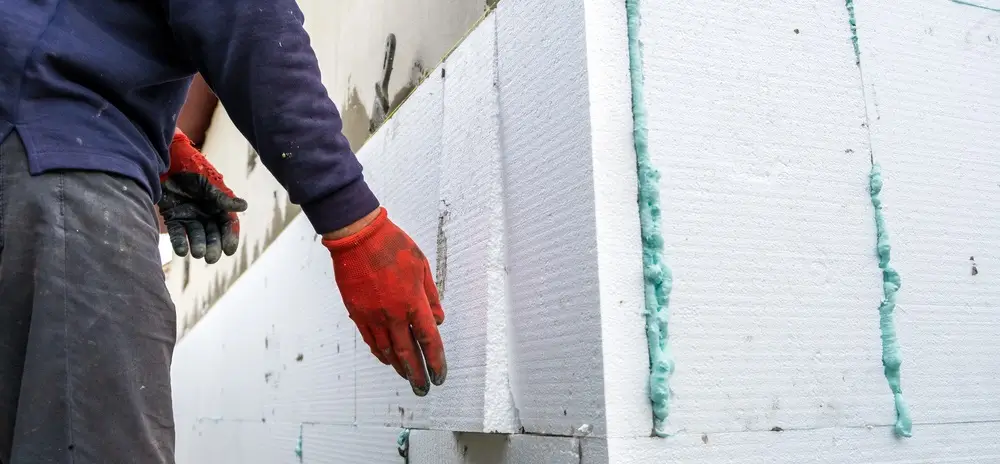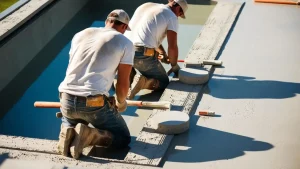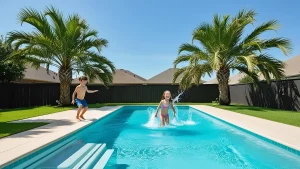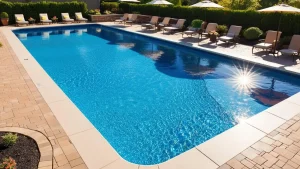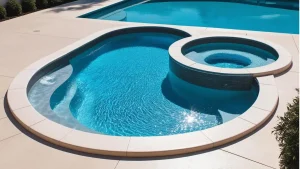People have settled for building a pool at home due to the near impossibility of achieving the dream with modern solutions, for instance, the EPS pool technology. EPS, which stands for Expanded Polystyrene, pools are proving ever more popular as the construction of the pools is durable, flexible, and energy efficient.
It will help to understand how the EPS pool is installed, give a comparison with the Vinyl liner pool, as well as tips on installing the EPS pool installation at home.
They can be found as a backyard addition or being built in a completely new and revolutionary way, and this article will make selecting a method easier.
EPS Pool Installation Process
Installing an EPS pool involves several steps, each designed to ensure a durable and functional pool.
Here’s a breakdown of the EPS pool construction process:
1. Planning and Design
The first step is to design the pool. This involves choosing the size, shape, and depth. EPS blocks are incredibly versatile, allowing you to create custom shapes and unique features like steps, benches, and infinity edges.
2. Site Preparation
The installation begins with preparing the site. This involves:
- Clearing and leveling the area.
- Excavating the ground to the desired depth.
- Laying a compacted gravel base for stability.
3. Assembling the EPS Blocks
The EPS blocks used incorporate unique features that allow rapid assembly due to their lightweight. These blocks are then heaped in a manner I can liken to a set of building bricks in order to create the walls of the pool. They are interconnected using connectors or bonded by a proper adhesive to hold the form.
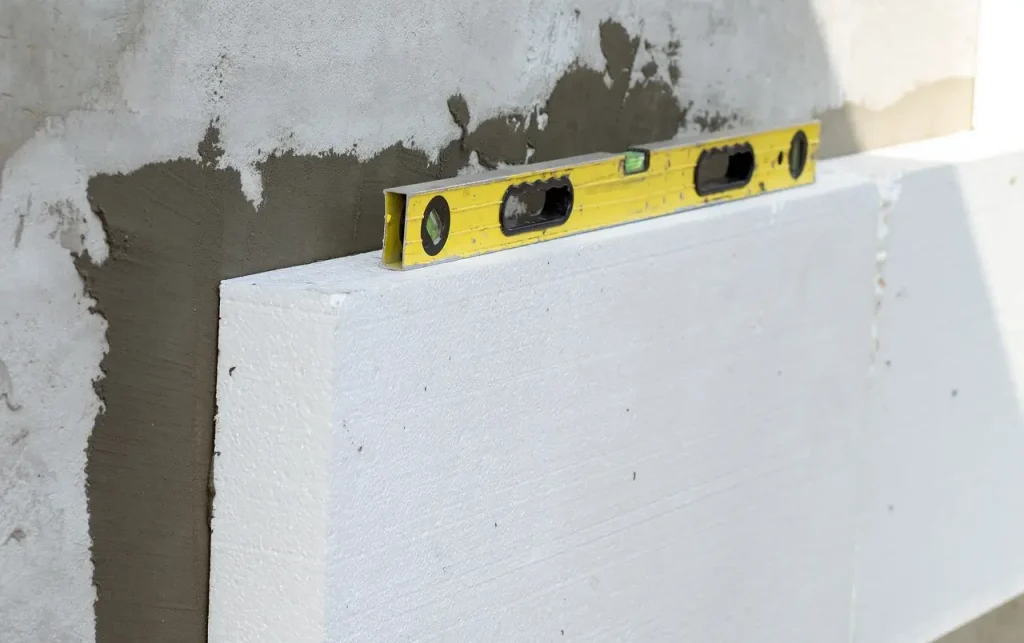
4. Reinforcement and Concrete Pouring
After the blocks are laid, the walls are strengthened with a steel bar known as the rebar. In EPS blocks, there are cavities where concrete is later poured to add strength and support to the wall structure. It is also done to ensure that the pool can withstand the pressures of water and other environmental factors.
5. Waterproofing and Finishing
Once the concrete has been poured and hardened, a pool can be made to be watertight by lining it with tiles, vinyl, or the like. This layer can prevent the structure from being damaged by water and also provides the pool with its functionality.
6. Plumbing and Filtration Installation
The next step in the process is fitting the plumbing and filtration system in our facility. Placement helps to allow proper water flow and swimming pool sanitation.
7. Final Touches
Finally, additional features like lighting, decking, and landscaping are added to complete your pool area.
How to Install an EPS Pool at Home?
Although it is possible to install an EPS pool at home with EPS polystyrene, it is a challenging task that can be executed only by an experienced person with expert knowledge. Here are some tips if you’re considering a DIY installation:
Assess Your Skills:
Make sure you have all the tools/ equipment and know-how concerning excavation, plumbing and concreting.
Follow Manufacturer Guidelines:
Install EPS blocks of high quality. Also should follow the instructions that the manufacturer provides.
Hire Professionals for Critical Steps:
In activities such as concreting plumbing amongst others, it is advisable to gain professional services so that every task is well done.
Obtain Necessary Permits:
Refer to the Ordinances of the local community or dwelling place and obtain the necessary permits for construction.
It is essential to understand that although having car stereos installed by the owner will reduce cost, having a professional installer do the work assures that the process is as smooth as possible and the best results are obtained.
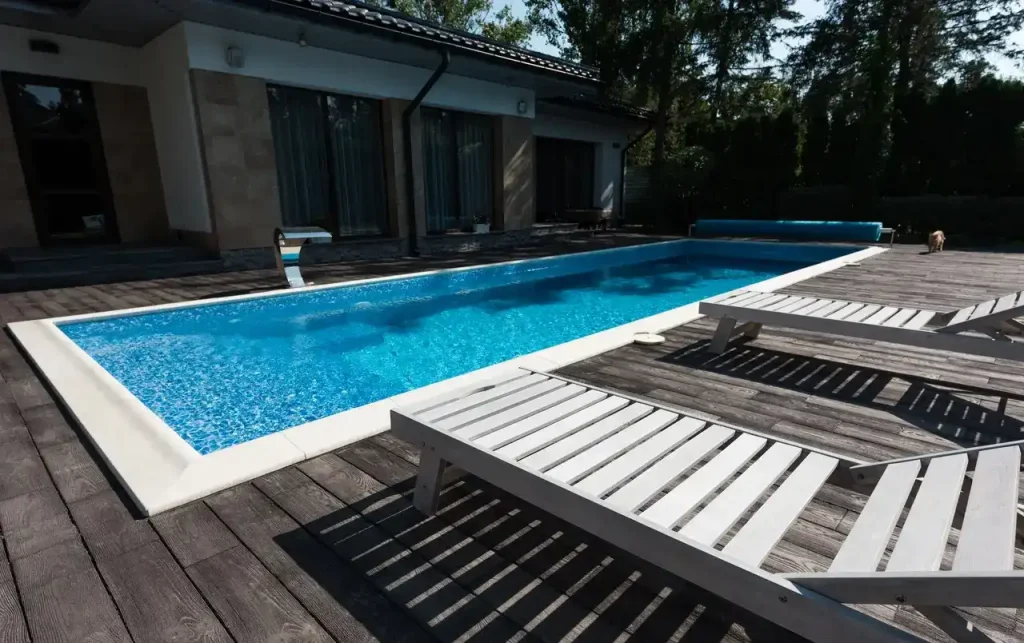
Benefits and Reasons to Choose EPS Pools for Your Home
EPS pools stand out among modern pool construction methods for several reasons:
Eco-Friendly:
EPS blocks are reusable and, therefore, cut down on wastage during construction.
Faster Installation:
This material is light, therefore the construction process is hastened.
Versatility:
In terms of the shape, this depends on the client’s preference; you may wish to have a rectangular lap pool or curvy freeform design, EPS pools can well hold your vision.
Energy Savings:
Because of the insulation properties of EPS, the cost of heating the building is considerably low hence economically friendly.
Difficulties that may be associated with EPS Pool Installation
While EPS pools offer many advantages, there are some challenges to consider:
Initial Cost:
It, in general, can be more expensive initially than vinyl liner pools.
Expertise Required:
Installation also involves the reinforcement of concrete and waterproofing and thus requires some special knowledge.
Such challenges, however, can easily be handled by professional employees within such organizations.
Conclusion: Why EPS Pools Are Worth It
EPS pool installation is a modern method of building home pools that is as effective, versatile and energy-efficient as contemporary homeowners could desire. When compared to vinyl liner pools and other more typical types of pools, EPS pools are more durable, Versatile in design and ultimately cheaper in the long run.
If one decides to erect an EPS pool on their own or hire experts, this technology provides one with a pool that is well constructed and created depending on one’s desires.
What is an EPS pool and why should I consider it?
EPS pools are made from lightweight, durable polystyrene blocks, offering faster installation and better energy efficiency. They are customizable and eco-friendly, making them an excellent choice for modern pool construction.
What are the key steps involved in installing an EPS pool?
Installing an EPS pool involves planning, site preparation, assembling EPS blocks, reinforcing with rebar, and pouring concrete. Waterproofing, plumbing, and finishing touches like decking and landscaping complete the process.
Can I install an EPS pool myself, or do I need professionals?
While DIY installation is possible with the right skills, hiring professionals for critical tasks like plumbing and concreting is recommended. This ensures proper installation and long-lasting results.
What are the main benefits of choosing an EPS pool for my home?
EPS pool installation is energy-efficient, customizable in design, and faster to complete than traditional pools. It also offers eco-friendly materials and long-term savings on heating costs.
What challenges should I consider when installing an EPS pool?
EPS pool installation can be more expensive upfront than vinyl liner pools and requires specialized knowledge for proper installation. Professional expertise can help overcome these challenges.

